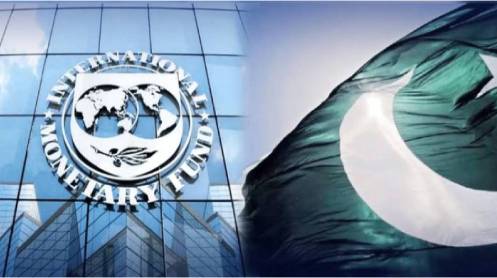ISLAMABAD: Pakistan has fallen short of three out of five major fiscal targets set by the International Monetary Fund (IMF) under the \$7 billion bailout programme, largely due to underperformance by the provinces and missed tax collection goals by the Federal Board of Revenue (FBR).
According to the Ministry of Finance’s fiscal operations report, provincial governments collectively failed to generate the agreed Rs1.2 trillion cash surplus, falling short by Rs280 billion. Simultaneously, the FBR missed its overall revenue target of Rs12.3 trillion, collecting only Rs11.74 trillion, and failed to raise any significant revenue from the much-publicised Tajir Dost Scheme, which had a Rs50 billion target.
Despite these setbacks, the federal government managed to achieve the most critical benchmark: a record primary budget surplus of Rs2.7 trillion, or 2.4% of GDP — surpassing the IMF’s target of Rs2.4 trillion and marking the highest primary surplus in 24 years. This strong performance is expected to ease the path for the release of the next \$1 billion IMF tranche, with review talks scheduled for next month.
Pakistan also posted a reduced fiscal deficit of 5.4% of GDP, beating the original 5.9% target, aided by stringent spending controls and improved non-tax revenue, which reached Rs5.6 trillion—30% above expectations—mainly due to higher petroleum levy collections totaling Rs1.22 trillion.
Provincial breakdowns showed:
- Punjab generated a Rs348 billion surplus but recorded a Rs41 billion discrepancy due to wheat debt payments.
- Sindh posted a Rs283 billion surplus.
- Khyber-Pakhtunkhwa reported Rs176 billion in surplus, despite a significant Rs155 billion discrepancy.
- Balochistan achieved a Rs113 billion surplus, bolstered by increased petroleum levy funds.
On expenditures, the federal government spent Rs17.1 trillion, including Rs8.9 trillion in interest payments and Rs2.2 trillion on defence. Current spending rose 15% year-on-year. Meanwhile, subsidies remained low at just 49% of the budgeted allocation, and federal development spending (PSDP) increased by 43% to Rs1.05 trillion.
Planning Minister Ahsan Iqbal has proposed an overhaul of the National Finance Commission (NFC) award to ensure more effective use of resources at the provincial level through performance-based benchmarks.
While the government missed key tax-related conditions, its fiscal consolidation efforts — particularly in maintaining a primary surplus and managing non-tax revenues — have placed it in a relatively stable position ahead of the upcoming IMF review.
Story by Shahbaz Rana







